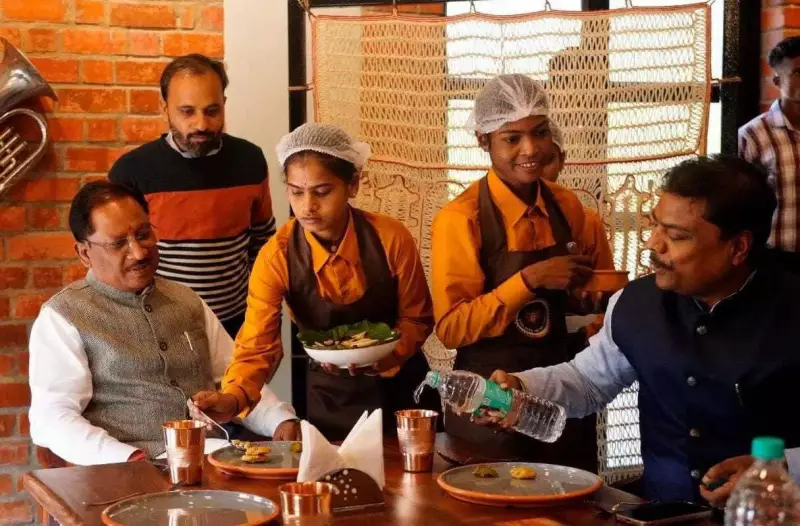
In a significant step toward peace and rehabilitation, Pandum Café opened its doors on Monday at the Poona Margham complex in Jagdalpur, located in Chhattisgarh's conflict-affected Bastar district. The unique coffee shop is entirely staffed by victims of Maoist violence and former cadres who have surrendered, marking a transformative initiative in the region.
A New Beginning for Bastar's Youth
Chhattisgarh Chief Minister Vishnu Deo Sai inaugurated the café, emphasizing its role in providing dignified employment while creating a neutral space for community dialogue. The café's name, Pandum, reflects Bastar's cultural roots, and its tagline 'Where every cup tells a story' captures the essence of this rehabilitation effort.
Inspector General of Police for Bastar Range, Sundarraj Pattlingam, explained that staff members received intensive training through district and police-supported programs. "Hands that once held weapons now serve with warmth," IG Pattlingam stated, highlighting the project's aim to build self-reliance and prevent relapse into violence.
Comprehensive Training for Sustainable Livelihoods
The training curriculum covered multiple essential areas:
- Hospitality and café management
- Customer service excellence
- Hygiene standards and food safety
- Entrepreneurship development
Chief Minister Sai met with café staff, including young women from Narayanpur and Sukma districts, and wished them success in their new beginnings. He described Pandum Café as "a beacon of hope for Bastar" that focuses on jobs and rehabilitation with dignity.
Personal Transformations and Community Healing
Voices from within the café revealed profound personal transformations. One former cadre emotionally described the experience as "a new birth" – a journey from darkness to serving society. Another staff member noted that working alongside survivors has helped break stigma and build trust within the community.
The café operates under Chhattisgarh's Surrender and Rehabilitation policy, aiming to provide sustainable employment to former cadres who abandoned violence while involving victims of Naxal attacks as active partners in the reintegration process.
Officials described the Pandum model as a replicable socio-economic approach designed to encourage more surrenders and boost community reconciliation across the region. The simple yet symbolic model combines skill-training and market linkages with social support, enabling formerly alienated individuals to earn their way back into mainstream society.
Organizers confirmed that entrepreneurship modules will prepare staff to eventually run outlets independently, with the administration providing ongoing mentorship, market access, and oversight of hygiene and food safety standards.
The rehabilitation program continues to expand creatively, with another batch of trainees currently preparing for hospitality roles at hotels, resorts, and homestays catering to tourists visiting the region.






